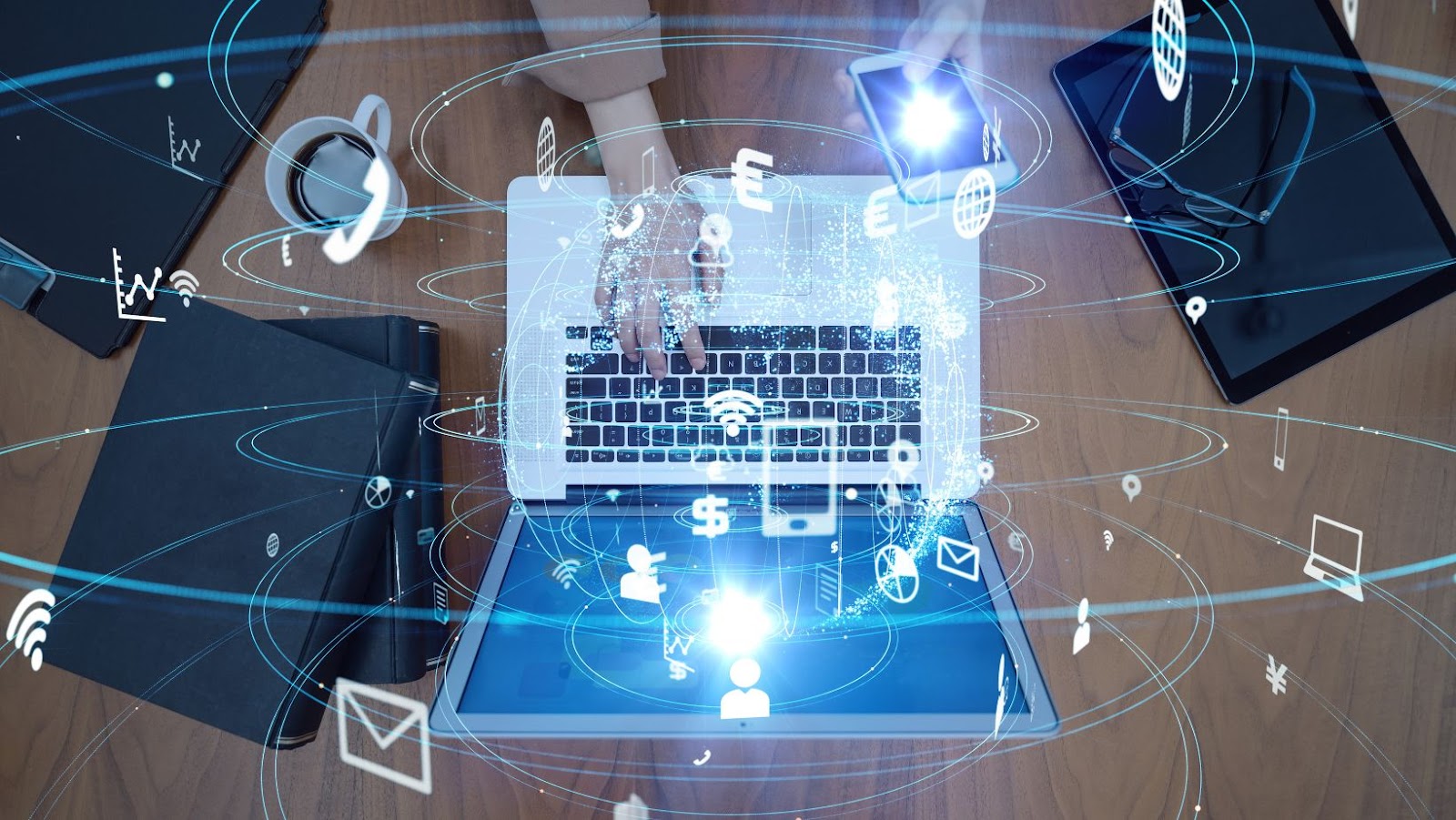Have you ever wondered what the international community’s reaction was to the indictment of executives of surveillance and torture companies Amesys and Nexa Technologies in Egypt and Libya?
This blog post will take a closer look at how different countries have responded to this issue. You’ll see why this indictment is so important in ensuring that surveillance and torture activities are no longer allowed to go unchecked.
Surveillance & torture in Egypt & Libya: Amesys and Nexa Technologies executives indicted
The indictment of a former intelligence officer in Egypt and Libya has raised questions about the responsibilities, ethics, and accountability of private security personnel working abroad. For years, these countries have been known for oppressive regimes, torture to extract information from prisoners, and pervasive governmental surveillance of its citizens. The recent revelation that a former U.S. government-hired military contractor engaged in such activities reinforces an urgent need for international oversight that can investigate allegations of human rights abuses and help ensure they do not occur in the future.
In Egypt, Human Rights Watch has documented widespread abuse by the security forces including reports of beatings and sexual violence, disappearances by police officers without trial or due process protections and unjustified killings by security forces. In Libya, Amnesty International has extensively documented cases of arbitrary detention through practices such as enforced disappearance, torture and other ill-treatment as well as violations related to freedom of expression. Amnesty International also recently noted that government forces loyal to Colonel Muammar Gaddafi were “arresting peaceful protesters” during the 2011 uprisings against Gaddafi’s rule.
The recent indictment is only one example showing how lax oversight can result in serious human rights violations going unchecked with impunity: an individual who previously served at various high levels within the Libyan military was employed by a private firm contracted by several governments across multiple continents to provide training for their respective security forces yet is now accused of grave abuses against civilians he was tasked with guarding or interrogated on behalf of his employers. Cases like this are compounded when impunity is granted at both domestic enforcement levels due to corruption while simultaneously being denied protection from international laws normally applicable because many states view private security firms operating abroad as outside their jurisdictional control.
Amesys and Nexa Technologies Executives Indicted
In a major development in international law, French judges have indicted two executives from the French companies Amesys and Nexa Technologies for crimes against humanity. This is the first time executives have been held accountable for alleged complicity in war crimes committed by any regime. Senior Politicians from various countries have expressed shock over the indictments, calling it a ‘moment of reckoning’. The indictments follow various investigations undertaken by European authorities into the possible involvement of these companies in providing technology to Muammar Gaddafi’s government during his regime.
The indictment has sparked a debate among legal experts and human rights organizations over whether corporations can be held accountable for their actions internationally or should be judged solely by domestic laws. Furthermore, some argue that though this is a significant step towards greater accountability on an international level, it sets a precedent in holding individuals responsible for enabling atrocities that may require further deliberation.
Human rights organizations worldwide have welcomed the indictments as a sign of progression and hope that it will set a new bench-mark which deter future abuses. On the other hand, commentators have pointed out that while this shows progress on accountability issues, much remains to be done to bring perpetrators of human rights abuse to justice at an international level across contexts and countries.
International Human Rights Law & Surveillance & Torture
International human rights law protects the right to privacy, physical integrity and freedom from torture. Surveillance practices that fail to protect these basic rights can result in legal consequences for those responsible. In particular, the international community has increasingly looked to hold governments and their agents accountable for violating international laws on surveillance and torture, which is why the indictment of Julian Assange in 2019 is so important.

The indictment of Mr. Assange is a step towards establishing accountability for illegal surveillance practices used by governments worldwide. The importance of this case lies not only in the fact that it sets a precedent enforcing international laws on surveillance, but also undermines impunity typically associated with these issues. This is particularly pertinent given the rise of extreme surveillance techniques such as brute force attacks, malware and sophisticated hacking tools designed to monitor internet communications across borders.
The wider implications are clear: monitoring phone calls and messages without informed consent could be considered torture as part of government investigation or action against individuals perceived as critical or subversive. Furthermore, issues such as mass surveillance contravene certain fundamental principles enshrined within human rights statutes holding state actors lawfully accountable for their actions which target citizens’ physical integrity and safety – a move embraced by aspects of the international community since its inception over seventy years ago.
Therefore, it remains essential that mechanisms exist within criminal justice systems which prosecute cases on explicit violations relating to surveillance and torture in an effort maintain transparency amongst state authorities and to effectively protect against further violations occurring without punishment or consequence at an international level.
The Role of the European Union
The European Union (EU) has played an important role in setting the international response to the indictment. The EU strongly supports the International Criminal Court’s (ICC) process as it holds individuals accountable for their criminal actions and upholds justice amid atrocity crimes. EU political leaders have publicly expressed support for the ICC’s investigation, with many of them personally welcoming the indictment and affirming a unified response.
The official position of EU foreign affairs chief Josep Borrell is that “the expulsion of Russian officials in solidarity with victims of atrocities is a priority and that sanctions should be furthered into consideration”, condemning those responsible for such violations. The EU Political Council identified additional measures plus “simultaneously taking into account dialogue with all stakeholders” as one possible step that could be taken, hinting at an ongoing diplomatic effort to end such appalling tragedies in areas of conflict worldwide.
The Council has ensured that emergency humanitarian aid is channeled towards those affected by war crimes, appointing special envoys to investigate disputes and manage peace processes in countries with experience of complex emergencies or ongoing civil strife. This multi-track strategy by the European Union underlines its commitment towards building a peaceful world where human rights violations are held to account without impunity.
The Role of the United States
The indictment of the former president by the International Criminal Court for human rights violations has sparked a debate about justice, accountability and the ability of international criminal justice systems to hold powerful perpetrators responsible. While many countries have called for accountability and demanded that those responsible for the atrocities be held accountable to international law, the role of the United States in this debate has been unique.

The United States has long opposed any investigation into alleged human rights violations by its allies. Still, when faced with an indictment from the International Criminal Court, it became apparent that an uncompromising stance could not be taken. The US needed to engage in a careful balancing act to ensure that its interests were represented while also maintaining diplomatic relations with its partners around the world.
In response to the indictment, several US-affiliated countries downplayed or dismissed initial implications of American involvement in human rights abuses overseas while also stating their support for international criminal justice systems and holding perpetrators accountable. Notably, these statements avoided mentioning US involvement with potential crimes committed overseas. Accordingly, while US-affiliated countries may tacitly agree that international criminal justice systems are necessary components of global peace and security, they appear unwilling to publicly recognize any role they may have played in any violations committed by sources within their shores.
The Role of the United Nations
The United Nations has played an important role in the international response to the indictment of President Omar al-Bashir by the International Criminal Court (ICC). The Security Council, where the five permanent members have veto power, issued a resolution in 2009 referring al-Bashir’s case to The Hague. This decision by one of the governing bodies of the U.N. has had large implications in how other countries and organizations have reacted to Al-Bashir’s situation on an international level.
Moreover, while some countries have voiced criticism against The Hague’s request for Al-Bashir’s arrest and extradition – notably Russia with their “constructive engagement” approach – other countries have lent their support to such charges. This includes France and Canada; both highly active members in the United Nations Framework Convention on Climate Change (UNFCCC). Through such support for ICC charges against Al-Bashir, these nations are setting a precedent for other signatory members of U.N conventions to follow suit when similar situations arise in different parts of the world where potential crimes may have been committed.
The stance taken by countries around the globe against Al Bashir has emphasised how as an international organisation,the Unites Nations is not just about making diplomatic negotiations but also ensuring justice exists and is accessible through first highlighting a situation before stronger legal policies can be considered. In this matter then we can see that the United Nations is integral towards combating impunity across all forms legal proceedings internationally stemming from issues related human rights violations or mass atrocities brought against any citizenry no matter their disposition or background.
The Role of Civil Society
Civil society organizations have often been at the forefront of efforts to address and prevent human rights abuses, including those which involve international crimes. The roles of civil society in responding to and reacting the indictment vary, depending on the particular context.

In many contexts where international crimes occur, civil society has played an important role in pushing for change. This can include lobbying governments and international bodies to take action against perpetrators of international crimes, collecting evidence to be used as part of an investigation or prosecution, providing support and services for victims and their families, or raising awareness about these issues publicly.
International NGOs have also played a critical role in monitoring situations where international or domestic laws are not being properly enforced or complied with, as well as providing legal support for investigations into such matters. These organizations can provide expertise and guidance on how best to address cases of impunity through counter-measures such as targeted sanctions against individuals involved in committing grave violations of human rights laws. They also serve as hubs for exchanging information between stakeholders (victims/survivors, witnesses, activists) about cases being heard at the International Criminal Court or other fora.
Civil society organizations have long sought justice for victims of war crimes and other atrocities by advocating before governments, UN bodies like the Security Council, regional courts such as the European Court of Human Rights or autonomous tribunals like the International Criminal Tribunal Rwanda (ICTR). Some NGOs have actively supported prosecution initiatives by gathering evidence that could be used in proceedings by countries affected by allegations of serious crimes under international law. Additionally they can present legal arguments before various forums to ensure that perpetrators are held accountable while justice is carried out accordingly. This work is often done in conjunction with a variety of other stakeholders such as states involved in national prosecutions arising out international criminal incidents.
Finally some NGOs organize public campaigns which call for greater responsibility from States when prosecuting violations committed abroad or domestically within their borders associated with alleged war crimes.
Conclusion: Moving Forward with International Accountability
International accountability for crimes committed in conflict is essential for lasting peace and security. It helps ensure that those who commit war crimes and other forms of violence are held accountable, setting an important precedent that violators can no longer act with impunity.
The international community must now move forward with this indictment and take further steps to create a strong system of international accountability. This can include strengthening existing institutions such as the International Criminal Court (ICC) and enhancing mechanisms on both the national and international levels to ensure enhanced compliance with international criminal law.
Through such measures, national authorities, civil society, and international organizations can work together towards creating a more secure world—one that treats perpetrators of violence by their crimes.


More Stories
Looking For A Gaming Tv? How To Choose The Right Tv For Ps5, Xbox And Pc
Tracking TRX: Understanding TRX Explorer Tools
The Technology Behind Vaping